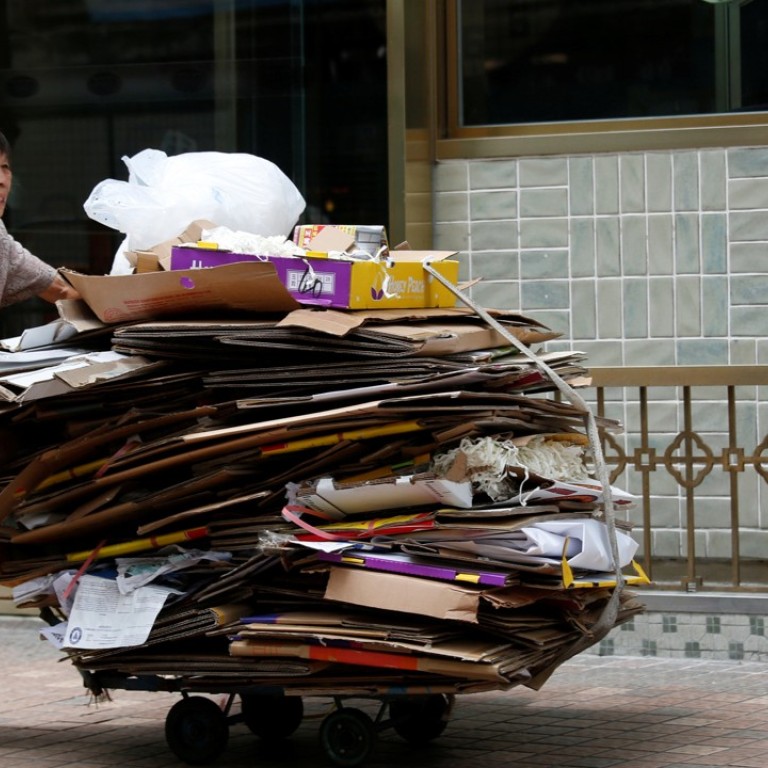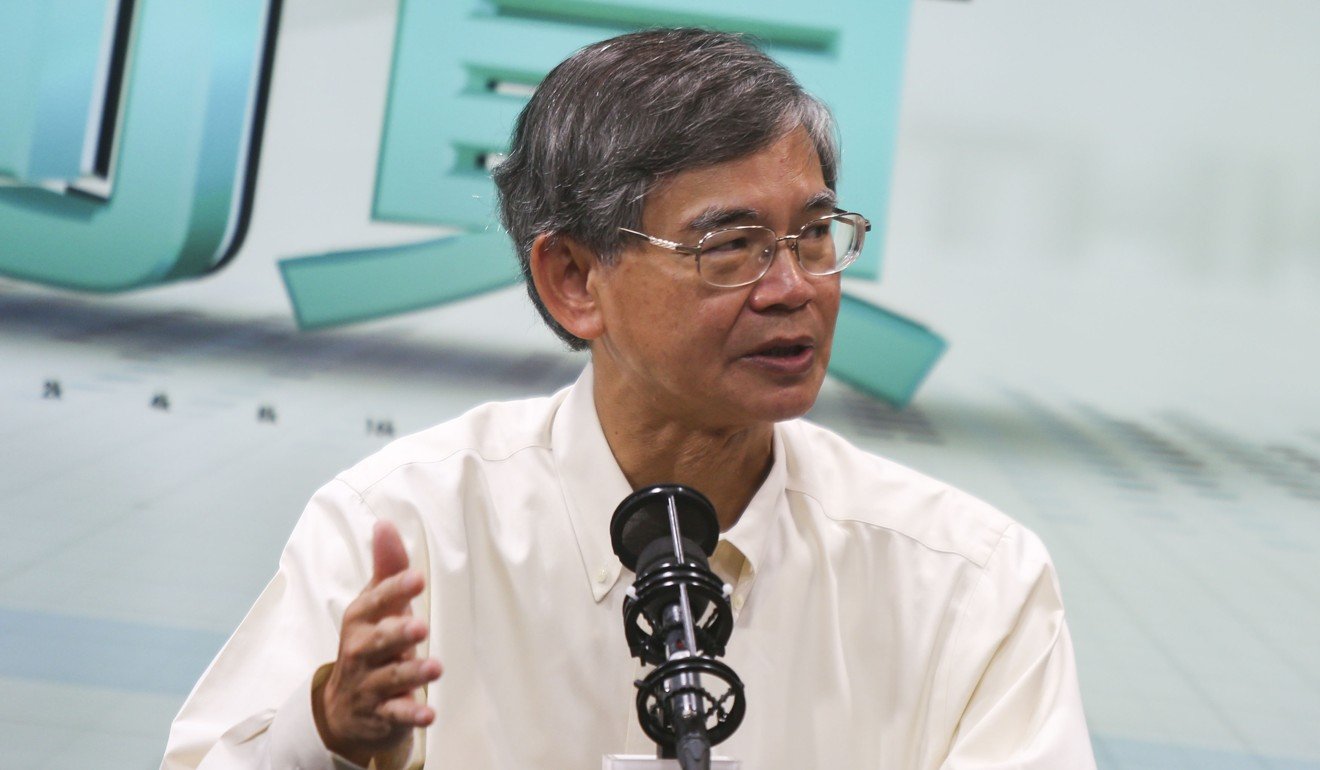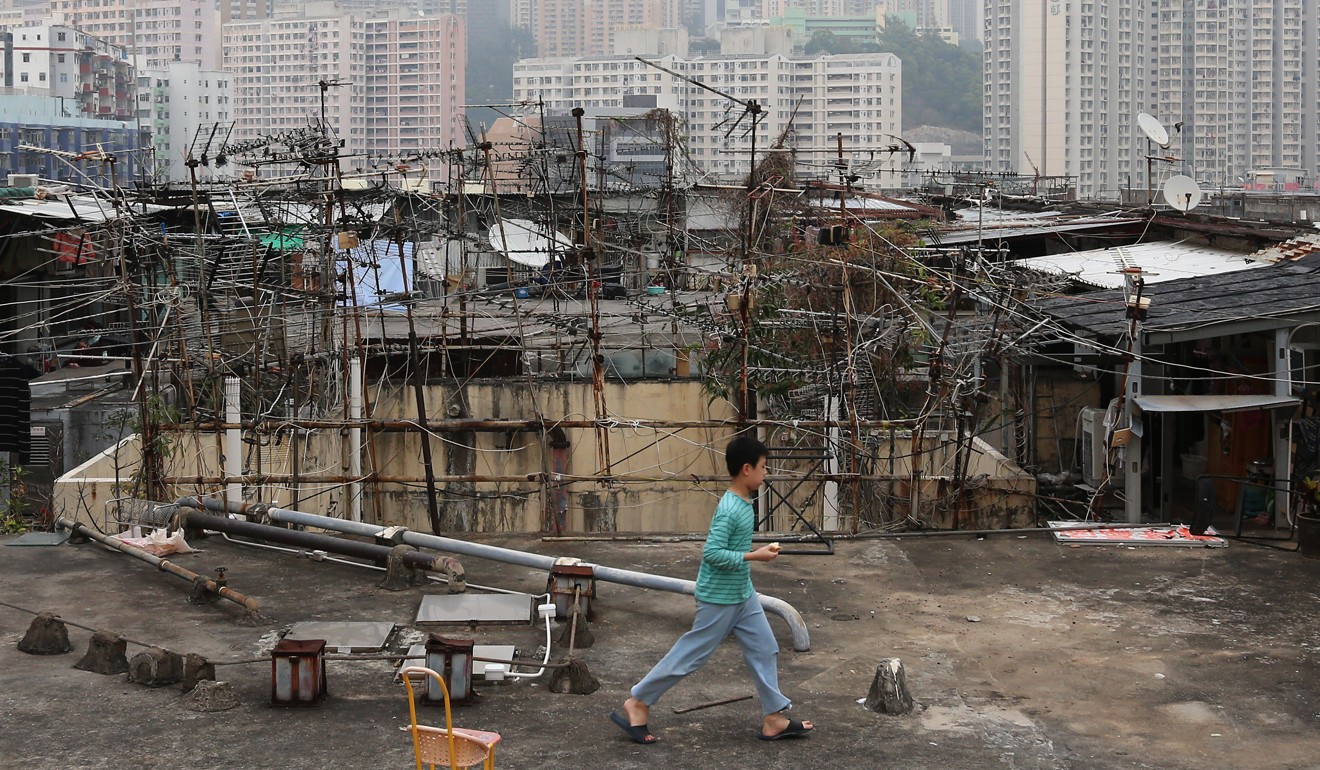
Poverty in Hong Kong could worsen in 2018 even after government handouts, welfare minister warns
The poverty line is derived from median household income and welfare handouts may not rise at the same rate, resulting in more Hongkongers considered impoverished
The number of impoverished Hongkongers could exceed 1 million next year even after taking into account cash handouts from the government, the city’s welfare minister warned on Monday, as he rejected accusations that his ministry was not helping those in need.
The Hong Kong Poverty Situation Report for 2016, released last Friday, showed that 1.35 million of the city’s 7.35 million residents were living below the official poverty line, with the figure dropping to 996,000 after factoring in cash interventions from the government.
Poverty in Hong Kong hits record high, with 1 in 5 people considered poor
In establishing who is poor, the authorities look only at income and not assets. The poverty line is drawn at half the median monthly household income according to household size.
Speaking on two radio programmes on Monday, Secretary for Labour and Welfare Dr Law Chi-kwong acknowledged that current efforts to alleviate poverty were not enough, but stressed that while welfare policies were adjusted for inflation in Hong Kong, the poverty line was derived from income.
“If the income rises quickly and the [increase in] inflation is slower than that of income, then the poverty gap becomes bigger,” he said.
For 2016, the poverty line was set at HK$4,000 (US$512) in income per month for a single person, HK$9,000 for a two-person household and HK$15,000 for three people.
Hong Kong government gives HK$150 million to needy local families
Law said that last year, only one new welfare policy, the Low-income Working Family Allowance Scheme, was launched. It gave families living below the poverty line or close to it a monthly handout to supplement their household income – from HK$300 to HK$1,000 a month for adults and either HK$400 or HK$800 a month for children.
Only about 30,000 people benefited from the scheme and its impact was limited, Law said.
Those who received handouts under other welfare schemes had the amounts adjusted for inflation.

Last year’s poverty figures were the highest since Hong Kong began measuring poverty in 2009, with 7,000 more impoverished people than in 2015.
The number of people living in poverty after the government’s cash interventions also rose by 25,000 from 971,000 in 2015, although the figure had fallen between 2009 and 2014, from 1.043 million to 962,000.
Law disagreed with accusations that the government had made matters worse for the poor, as poverty numbers had risen despite handouts.
“It is not that the government has not done more [to help], but that what it has done is not enough to close the poverty gap,” he said.
Cash interventions include the Comprehensive Social Security Assistance and the Old Age Living Allowance, with recipients having to undergo means testing.

Law added that his ministry would do its best to improve the welfare of impoverished Hongkongers, highlighting relaxed eligibility requirements and more generous subsidies in the revised old age living allowance scheme from the middle of next year.
A higher monthly allowance of HK$3,435 per person will be given to elderly singles with assets not exceeding HK$144,000 or elderly couples with assets not exceeding HK$218,000.
Currently, elderly people aged 65 or above with a monthly income not exceeding HK$7,750 for singles, and HK$12,620 for couples, and assets not exceeding HK$329,000 for singles and HK$499,000 for couples can receive a monthly handout of HK$2,565.
The minister rejected calls for cash payouts, adding that the government should not be myopic in policymaking.
“If the current government wants better figures [on poverty], we can have cash payouts and let the next government think [of what to do next], but that would be irresponsible,” he said.
Third of Hong Kong’s poorest children ‘going without regular meals of meat or fish’
Law also said the poor were mainly those who were working and the elderly, so poverty alleviation efforts would move in this direction.
Lawmaker Fernando Cheung Chiu-hung said the poverty figures showed the government was clearly not doing enough.
For the working poor, it would be more helpful if the government raised the minimum wage, which is currently set at HK$34.5 per hour.
For the elderly, Cheung proposed a non-means tested universal retirement scheme, which was previously studied by the government before it was rejected earlier this year in favour of revisions to the old age living allowance scheme.
He explained that some elderly might find it troublesome or demeaning to be subjected to a means test, where they would have to declare their income and assets.
Bigger allowance on cards for Hong Kong’s elderly, but no universal pension
In releasing the report last week, Chief Secretary Matthew Cheung Kin-chung also mentioned the introduction of a life annuity scheme in the middle of next year.
The annuity scheme provides an option for retirees to invest a lump sum in exchange for a guaranteed monthly income for the rest of their lives.

